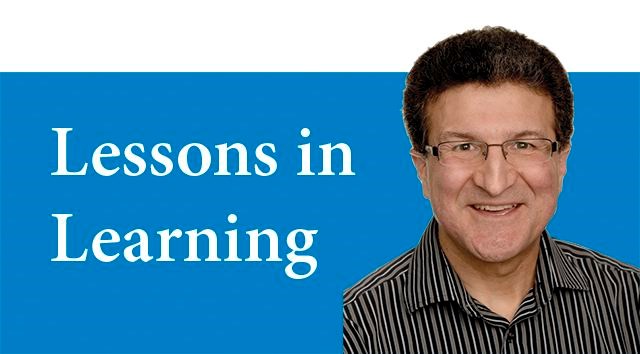Teacher and motivational speaker Jack Canfield tells us, "Take the risk to ask for whatever you need and want. If someone says no, you are no worse off than when you started. If someone says yes, you are a lot better off."
Following Canfield's principle can not only benefit us, it can benefit others as well. This lesson was taught to me by a Grade 11 student in 2009, and the result of her asking a question continues to make a positive difference in the lives of thousands of young people.
I had just had the honour of having a survivor of the Blood Diamond Civil War in West Africa speak to my class. He had gone from being a child soldier to now running several schools, primarily in Liberia. My students were clearly moved by the power of his message.
At that moment, the Duchess Park building was old and in need of replacement, and a beautiful new school was being built on the other side of our parking lot.
Having become aware of the discrepancy between Canadian and African schools, a student approached a few hours after our speaker left and said, "Mr. Chidiac, we are getting a beautiful new school, with smart boards and the latest technology. What are they going to do with the chalkboards from this building?"
I said, "I don't know. Why do you ask?"
She replied, "Would it be possible to send these chalkboards to our speaker's schools in Africa?"
Having worked on aid projects, primarily in Africa, I was well aware of the greatest obstacle to getting materials where they are needed: shipping fees. I was wise enough to put this knowledge to the side, however, and responded, "I don't know. Let me send a few emails and find out."
At that moment, it was like the heavens opened up with a resounding "YES" to my student's question.
A local doctor already had an arrangement with Art Knapps and the Nechako Rotary Club to send medical supplies to Liberia. They could see the value of my student's request and agreed to help. As a result, over 50 chalkboards arrived at our speaker's schools in 2010.
The story didn't end there, however.
When my student was in Grade 12, there were a number of school closures in our area, and thus a surplus of textbooks. Again she asked me if we could ship them to Africa. Again Art Knapps and the Nechako Rotary Club came on board and shipped a container of textbooks to Liberia.
Today, in a country where students are motivated to learn but school facilities are deplorable, a group of schools is well supplied with chalkboards and textbooks, and thousands of children are able to get the education they deserve. None of this would have happened if a student had not simply asked a question.
This is my favourite story to tell my students to this day because it not only teaches the importance of asking, it empowers our young people and demonstrates that they can make a difference right now.
It is indeed possible that my student's suggestion may have proven to be impractical. Oftentimes our great ideas simply do not work out. That is not the point, however.
If we don't ask, it is the same as being told no.
The thing is, until we ask, we don't know for sure that the answer will be no. There is a chance that the answer could be yes. We just need to have the courage to find out.
Applying this principle can make a tremendous difference in our lives, and as my student proved, it can make a positive difference in the lives of countless others.
All we need to do is ask.
For more Lessons in Learning, visit Gerry's website at gerrychidiac.com.



